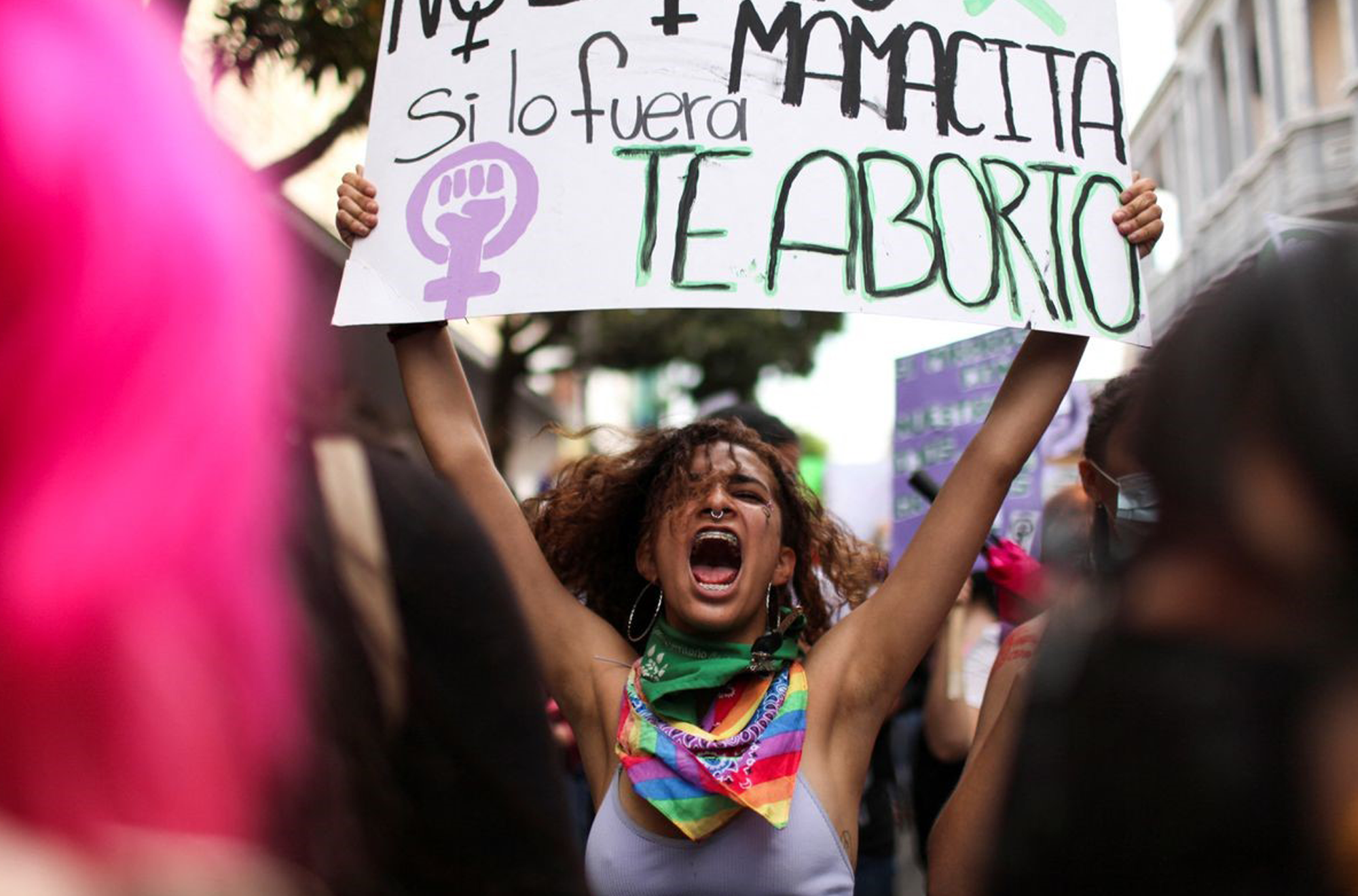
Protest march, Guatemala City, 8 March 2022
On International Women’s Day, Guatemala’s Congress approved a law by a vote of 101 to 8, with 52 others not voting, that punishes abortion with up to 25 years in prison, labels LGBTQ people “abnormal” and prohibits the prosecution of anyone who carries out a hate crime against them, and prohibits same-sex marriage and teaching about sexual diversity in schools. This large a majority, including allies of the President, Alejandro Giammattei, was said to have been unexpected. The penalty for an abortion was increased from 5-10 years to 25 years except when the life of the woman is in danger. The bill had been on ice since 2018.
Some lawmakers argued against the bill because it promoted hatred and homophobia and unfairly criminalised women. Even the Asociación la Familia Importa, a conservative “pro-family” group, expressed concerns about the constitutionality of parts of it on Twitter.
Guatemala’s human rights ombudsman, Jordan Rodas, said he would challenge the law on human rights grounds. ‘It violates human rights, it violates the international agreements ratified by Guatemala, it is a setback to freedoms,’ Rodas told reporters outside the Congress.
On 9 March, the day after the law was approved, Guatemala’s President Alejandro Giammattei held a ceremony to declare the Central American nation “the pro-life capital of Iberoamerica”. The Congress had already declared March 9 “the day to celebrate family and life”. When he began to hear the criticisms, including from international human rights groups, however, he did an about-face.
On 10 March, Giammattei called on the Congress to shelve the new law. He said he would veto it if it came to his desk because it violates the Constitution and international agreements signed by the country. ‘If that law reaches my office, it will be vetoed; therefore, I recommend to the Congress of the Republic, with all due respect, that it please archive the decree,’ Giammattei said in a televised message. He also said its constitutionality needed to be reviewed. Some members of the Congress then began to look for ways to stop it from reaching his desk.
On 12 March, with chants of “this pro-life government doesn’t value our lives”, hundreds of people converged on the Guatemalan Congress to show their indignation at the new law as a threat to the rights of women and members of the LGBTQ community.
On 15 March, the Guatemalan Congress voted to shelve the new law because parts of it were considered unconstitutional and in violation of international treaties that Guatemala has signed.
SOURCES: ABC News, by Associated Press, 15 March 2022 ; AlJazeera, by Jeff Abbott, 14 March 2022 ; The Tico Times, by Henry Morales Arana/AFP, 11 March 2022 ; Reuters, by Sofia Menchu, 9 March 2022 + PHOTO: Sandra Sebastian/Reuters



